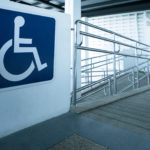Do You Know How To Manage Your Medication?

It is not unusual for someone with a spinal cord injury (SCI) to take multiple medications. These medications help combat changes that may have occurred in your body.
Keeping track of all your medications, and when and how you should take them, can be a big task.
Whether you are the one doing the organizing, or you have a caregiver, you might want to try these tips for managing your medication.
1- Buy a pill box
Buying a pill box is one of the most helpful things you can do to organize your medications. It will ensure that you take the right amount of medicine each day. A quick glance at the box will tell you if you’ve had your medications yet or not. You won’t have to second-guess or count all the pills in your bottle.
Pill boxes come in several different forms. Some just have one compartment for each day. Others have three or four compartments for each day, divided up by time of day. The most common pill box has a morning and evening section, but you can find ones with lunch and afternoon ones, too.
2- Write out a schedule
Making a schedule that shows what medication you take, the dosage, and what time of day you take it is important. Even if you have a pill box, this written reminder will serve as a reference every week when you fill up the box. It also good to have this list for your caregivers to reference, or if you go to a doctor’s appointment.
Another thing you can write out on your schedule are any special instructions. Some medications are supposed to be taken with food. Some make you more susceptible to sunburn. You want to remember these instructions to help you avoid discomfort or bad side effects.
3- Create a reminder strategy
Having a pill box and written instructions won’t help you if you completely forget about taking your medicine. Alarms are an excellent way to remind yourself to take your medication at the right time. Some people set alarms on their watch. Other people use their phones.
They also help with other routines, such as remembering it’s time to catheterize. You can even download alarm apps. These apps have more features than a standard alarm and can help you with medication management.
4- Make a travel list
If you travel or spend a lot of time away from your house, you should make a medication list to bring with you. This list does not have to be as detailed as the medication schedule in tip number two, but it should include the names of all your medications and the dosages. This is good to have if your medications ever get lost, or you need to receive health care away from your regular hospital or doctor’s office.
5- Buy a medical ID bracelet
A medical ID bracelet isn’t necessary, but it can be helpful. If you are taking a lot of medications, have certain medical conditions, or have any allergies, a medical ID bracelet can help save your life in an emergency. This bracelet (or necklace) can be printed to have information about your conditions, your medications, and your allergies so that if you are in an accident or become unconscious, emergency responders know how to treat you.
Managing your medication can make your life a lot less stressful. Knowing that you have ways to take control of your care will make you feel empowered and in charge of your life. Not only that, but proper medication management will also help you stay as healthy and well regulated as possible. If you don’t already have a good routine, then don’t delay to put these tips into practice.
Author: Annie Beth Donahue is a professional writer with a health and disability focus.







